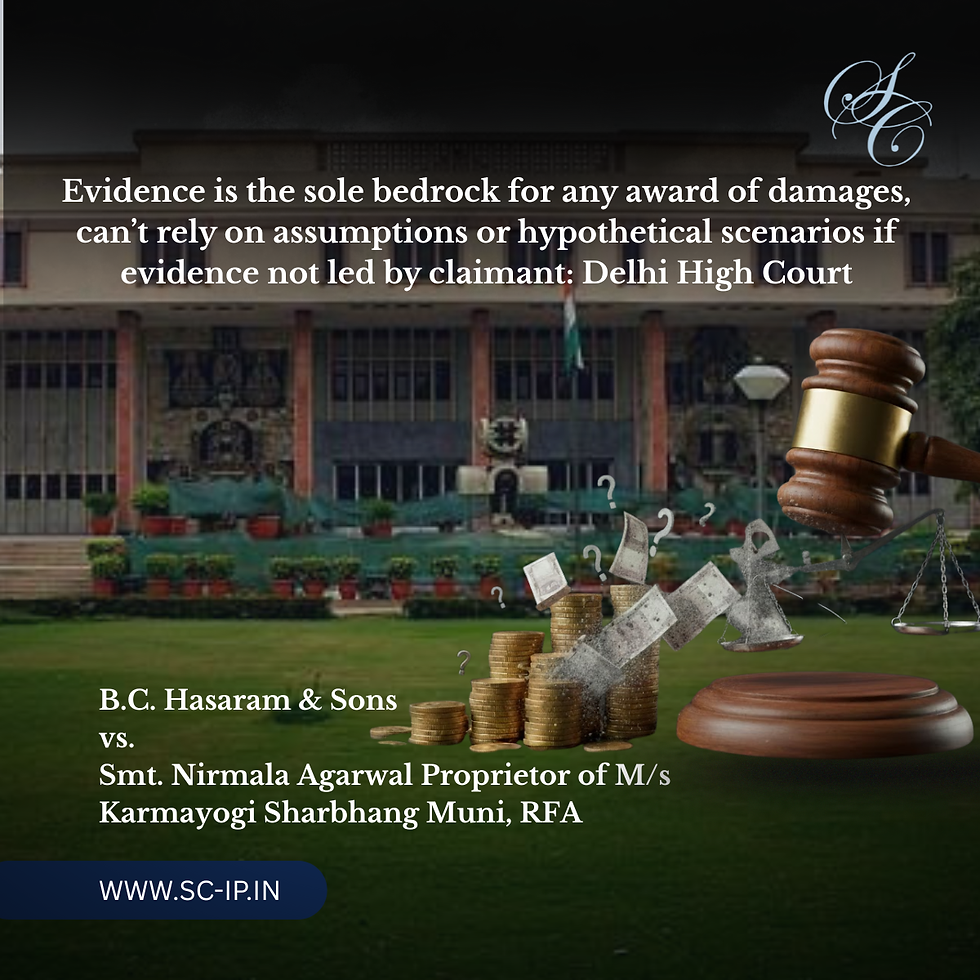Dolby International Ab & Anr vs Lava International Limited
- SC IP
- Jul 16, 2025
- 2 min read
Updated: Jul 17, 2025

Key Observations from the Pro-Tem ruling in Dolby v. Lava directing Security Deposit of over INR 20 crores
The pro-tem order by the Hon’ble Delhi High Court directing Lava to furnish a security deposit of over INR 20 crores is an important milestone in the evolving Indian regime for standard-essential patents (SEPs) and FRAND licensing. The following eight (8) key considerations were instrumental in arriving at the ruling:
Pro-Tem Security: Not a Substitute for Injunction, But a Balancing Tool
The Court clarified that a pro-tem security order is distinct from an injunction as it does not stop Lava’s business but ensures that Dolby is not left without protection while litigation is pending. This approach balances the equities when determining SEP disputes, especially given the long timelines for trial.
Prima Facie Case: Depth of Review Depends on Parties’ Conduct
The Court held that, at the pro-tem stage, it need not conduct an “in-depth” exploration of essentiality and validity. Instead, a prima facie finding is sufficient, especially where:
The SEP holder (Dolby) made detailed technical and commercial disclosures,
The implementer (Lava) failed to meaningfully challenge the patents during years of negotiation,
Lava only questioned essentiality and validity after the litigation started.
Patent Holdout: Conduct Matters
Lava’s negotiation tactics in delaying counteroffers, seeking endless information, and raising new technical objections only in court were characterized as “patent holdout.”
Key takeaway - Parties who stall or avoid bona fide FRAND negotiations may face adverse consequences at interim stages.
Security for Expired Patents: No Benefit from Delay
The Court rejected Lava’s argument that expired patents shouldn’t be covered by the pro tem order. Since all the patents were valid when Dolby initiated negotiations (and Lava’s delays caused their expiry), Lava was held liable for the whole portfolio for the relevant period.
Royalty Calculation: Comparable Rates & Market Practice
The Court accepted Dolby’s licensing rates, finding them in line with rates for other similarly situated licensees. Lava’s INR 5.13 per device counteroffer was found to lack any economic or documentary basis.
Financial Solvency: Security Needed for Effective Relief
Dolby provided evidence of Lava’s financial liabilities and ongoing regulatory issues. The Court found it prudent to secure Dolby’s interests now, to avoid the risk of an uncollectible judgment after trial.
No Third-Party Agreements Required at This Stage
The Court reaffirmed that the SEP holder is not required to disclose confidential third-party licensing agreements at the pro tem stage, and implementers must make their own FRAND assessments and counteroffers.
Retroactive Liability: Security From First Assertion, Not Just from Suit Date
The Court ordered the security deposit to cover all sales from December 2018 (when Dolby first asserted its patents), rejecting Lava’s request to limit liability to the post-suit period.
This order is a clear message - Conduct, Compliance & Good Faith Are Critical.
Dolby International Ab & Anr vs Lava International Limited,CS (COMM) 350/2024 Read the full judgement copy here.




Comments